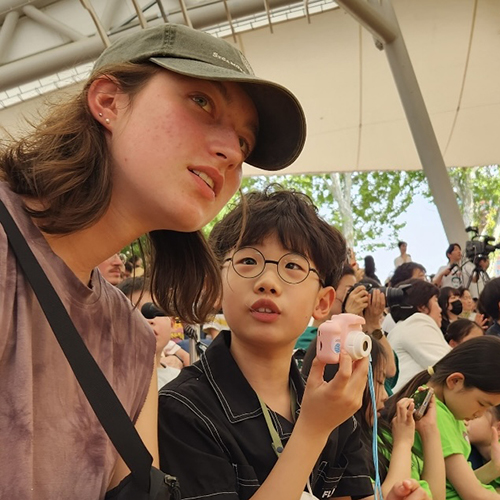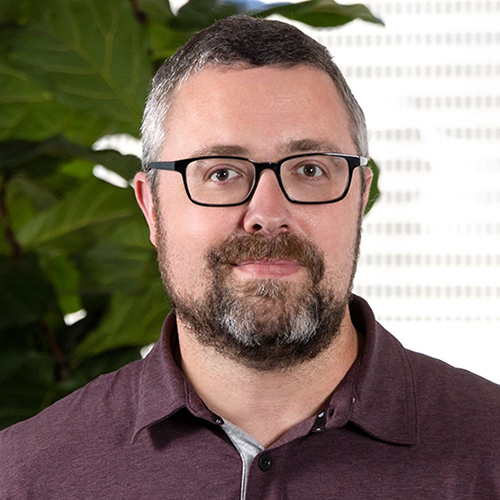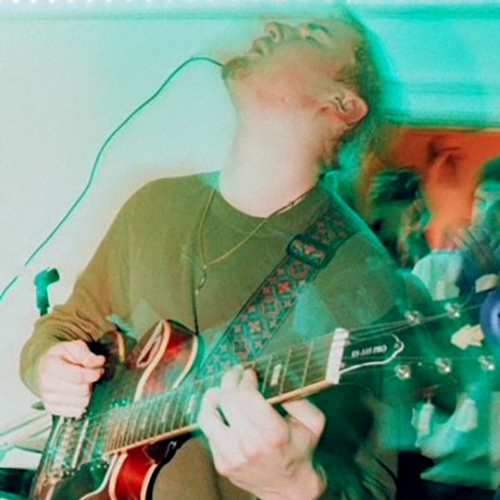In October 2004, a generous check arrived at the Department of Linguistics, along with the following explanatory note:

“A few years ago I made the decision that I would donate my entire first paycheck to the department after I left the UW. It’s not much. It’s not nearly enough to pay back what this department has given me. I hope with this small token of my appreciation the department can continue to help students, as it has helped me.”
The note—and donation—were from Chia-Hui Huang, who earned her PhD from the department in 2003.
What inspired Huang, now a visiting assistant professor of linguistics at the University of Pittsburgh, to make such a gesture?
“I realized how lucky I was to have professors who were so enthusiastic about their work,” she explains. “That kind of enthusiasm is contagious and it serves as a great source of inspiration for graduate students. I felt the best thing I could do to support the Linguistics Department was to donate some money. After all, it is because of the training I received from this department that I was able to find a job.”
Like her mentors, Huang is passionate about linguistics. When she took her first linguistics course as an undergraduate, she found “it was so hard and so challenging that I decided to take more classes,” she recalls. She had found her field.
Later, as a graduate student at the UW, Huang found her calling: teaching. She served as Lead Teaching Assistant (TA) for the department and earned the University’s Excellence in Teaching Award—the top teaching honor for graduate students—in 2002.
“In a group of TAs who were outstanding instructors, Chia-Hui distinguished herself both by her knowledge of the subject matter and her amazing facility in the classroom,” recalls Julia Herschensohn, Linguistics Department chair. “She did not rest on her laurels, but continued to seek ways to improve her teaching.”
Huang even turns the teaching award into an opportunity to praise the department. “The two reasons I received the teaching award were that I learned from the best,” she says, “and I had a great group of students who worked very hard and were very tolerant of my experimenting with different techniques.”
Since making her unusual donation, Huang has been surprised by the response to the gift. “I felt that it was nothing,” she says. “I’m a little bit embarrassed by the
attention it has received.” And she insists that giving up a paycheck has not put her in the poorhouse.
“My friends were worried about me giving up my first paycheck, suggesting that maybe I’m starving myself,” she admits with a laugh. “But I’m not. I’ve planned for this, and I’ve been putting money away.”
After all, a promise is a promise.
More Stories

Finding Family in Korea Through Language & Plants
Through her love of languages and plants — and some serendipity — UW junior Katie Ruesink connected with a Korean family while studying in Seoul.

Working Toward Responsible AI
Artificial intelligence (AI) is an essential tool at Indeed, a global job-matching and hiring platform. Trey Causey (2009) works to ensure that the company's AI promotes equity and fairness.

Celebrating Contemporary Indigenous Music
Markus Teuton, a musician and citizen of Cherokee Nation, explores contemporary Indigenous music through his academic work and as host of “Indigenous Jazz,” a radio show.